On December 30, Hellenic Police arrested a 41-year-old ethnic Kurdish individual and citizen of Turkey for alleged acts of terrorism. The man had gone to a police station in Athens for a routine renewal of his asylum papers, and upon entering his information into a computer, the on-duty officer discovered an INTERPOL Red Notice calling for this person’s arrest. The notice was related to a 2013 bombing in Turkey, which the man is said to have had a part in, and he is further accused of being a member of the Marxist-Leninist-Maoist insurgent group, TiKKO, designated a terrorist organization by the Turkish government.
Turkey has been a hotbed for revolutionary communism since its official recognition as a republic in 1923. This has much to do with its past as a largely agrarian, peasant society, as well as with its sizeable and often marginalized minority groups, not to mention its geography—having been near to both Marxist ideas in praxis as well as to the Russian Revolution and Civil War from 1917-1923. Ethnic Turks living in the rural countryside and urban “slums” easily find common cause with Marxists abroad in both the east and the west, and at the center of Turkey’s well-established communist movements lies the ethnic Kurdish population, who have had long-standing grievances with the Turkish government and have faced a history of repression since the republic’s founding.
From the late 1960s until one of Turkey’s most violent and consequential military coups d’état in 1980, the far-left and the far-right were in open conflict, and the period was characterized by militant underground political activity, bombings, and assassinations which closely resembled Italy’s anni di piombo (“Years of Lead”; ca. 1968-1982). Out of the milieu of far-left communist organizations to arise from Turkey’s decades of left-versus-right violence emerged the Communist Party of Turkey/Marxist-Leninists (TKP/ML), and its armed insurgent wing, the Liberation Army of the Workers and Peasants of Turkey, or “TiKKO”. Similar to Chinese revolutionaries in the time of Mao Zedong, the TKP/ML and its predecessors sought to adapt Marxist-Leninism to the unique conditions in a country that was struggling to industrialize, with a large agrarian population concentrated in Anatolia. Again, due to geography and demographics, much of Turkey’s communist activity is located in the east of the country, in addition to certain urban areas sympathetic to far-left movements.
In 1972, TiKKO and adjacent organizations were fully prepared to wage armed struggle against the Turkish government and its right-wing allies, but just a year into their insurgency, the TKP/ML’s founding figure, Ibrahim Kaypakkaya, would be incarcerated and tortured to death. Nonetheless, TiKKO and its allies continued to build their networks and carry out direct action against the Turkish state and various other targets deep into the early 2000s.
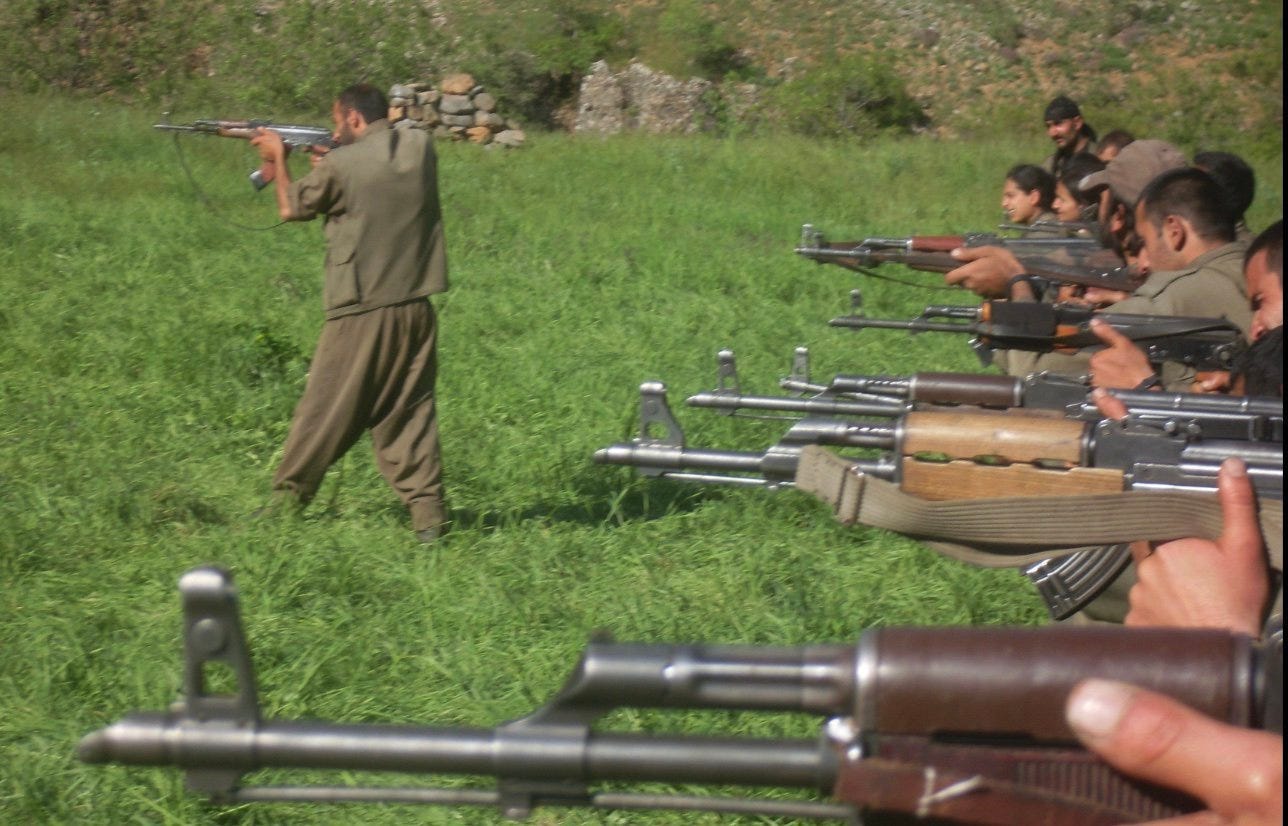
By the 2010s, TiKKO was waging a legacy struggle against the Turkish government, as well as looking to the south in neighboring Syria, where a civil war against the Syrian government was quickly becoming complicated by the presence of Salafi Jihadists, most notably the Islamic State in Iraq and al-Sham (ISIS). However, there was a split within TKP/ML (ca. 2015-2016), dividing the organization into “TKP/ML” and “TKP-ML,” both of which continue to use the abbreviation “TiKKO” for their armed branches. Seeking to secure recently gained ethnic Kurdish territory from incursions by both the Syrian Arab Army as well ISIS, TiKKO committed some of its fighters to the struggle south of the Turkish border, while attempting to carry on operations within Turkey itself and maintain capital as a premier revolutionary organization. (One of TKP-ML/TiKKO’s commanders—an ethnic Armenian—Nubar Ozanyan, was killed in 2017 while fighting ISIS in Syria.)
Amidst a series of attacks carried out in Turkey in the 2010s was the 2013 bombing in Tunceli—a major operational base for TiKKO—which targeted a hydroelectric power plant’s control facilities. TiKKO claimed responsibility for the bombing. It is this attack which the individual arrested on December 30, 2023, in Athens, is accused of having participated.
Neighboring Greece has been a prominent haven for far-left Turkish militants, especially after they have carried out high-profile attacks. Not only do various diplomatic mechanisms offer a thin veil of protection to such individuals, but Greece has throughout the latter 20th and early 21st centuries hosted both underground and parliamentary left-wing movements sympathetic to the Turkish revolutionary left. In 2020, 11 alleged members of the militant Turkish communist DHKP/C organization were arrested in Athens following the discovery of a large weapons cache, which included rockets and launchers.
The accused member of TiKKO appeared before an appeals court in Athens on January 2 of this year. It remains unclear whether he will be extradited back to Turkey or remain in Greece as an asylum-seeker. He was originally connected to the 2013 bombing by Turkish authorities through fingerprint evidence and phone surveillance.
The Armaments of TiKKO Fighters
Here it is seen that TiKKO guerrillas use AKM-pattern rifles including Zastava M70 or Tabuk and East German MPi-KM(S)-72. These weapons are the most common weapons in guerrilla organizations in the Middle East. In many countries, it is extremely easy to obtain these weapons from the black market. Like many guerrilla organizations, TiKKO has networks in countries such as Iraq and Syria, making it easier for them to access such weapons. In addition, it would not be wrong to say that TiKKO obtained various weapons from the PKK, or the Kurdistan Workers’ Party, due to its proximity to them.
At the same time, it is seen that TiKKO fighters use wraps on AK variants to facilitate grip. These can be patterned in various camouflages or plain colors.
In addition, the most commonly used machine guns of TiKKO are PKM variants (also locally called 'bixi'). These weapons may have been obtained from various sources.
PKM variants are the most common type of machine gun in the Middle East, just like AK variants. Like almost all guerilla organizations operating in Turkey, TiKKO are able to attain such weapons.
The RPG-7/Chinese Type-69 is another of the most common weapons in the Middle East. From Syria to Iraq, these RPGs are used by almost every organization.
Another weapon used by TİKKO guerrillas includes AK-74 variants. AK-74 variants are chambered in 5.45x39mm cartridges. Although they are similar in appearance to the AK-103, they can be distinguished by their magazines.
Magazines with a capacity of 45 rounds can make it difficult to control the firearm due to their weight even if they contain more rounds.
Just like the previously mentioned weapons, Dragunov SVDs are the most common sniper rifles found in irregular armies. SVDs are generally used with PSO-1 scopes. These scopes are standard optics mounted on SVDs. Still, it is possible to see SVDs with different scopes or without any optics at all. Optics often become damaged during firefights.
Sniper rifles can be used to eliminate a target directly or to protect the front line in a raid, so they play a key role in many irregular forces’ armories.
However, if we examine the activities of TiKKO's militants in urban areas, we see that they are equipped with simpler weapons.
There may be several reasons for this:
The difficulty of transferring assault rifles from rural areas to cities.
It is more difficult to store assault rifles in the city.
Assault rifles are harder to obtain than legal weapons.
Underground groups wish to avoid losing assault rifles and other kit as much as possible.
Therefore, militias in metropolitan areas generally prefer to use legally available weapons. These are mostly pistol variants and shotguns with smooth bores. In addition, it is extremely common for militia to use fireworks and Molotov cocktails during violent demonstrations in which clashes with police are common.
Since the making of Molotov cocktails is extremely simple, this small flammable bottle is often used by the street-level armed wings of almost every revolutionary organization in Turkey. They can be highly useful in attacks on police vehicles or against soft targets such as unmanned buildings, etc.
As was mentioned above, smooth-bore shotguns are also frequently preferred weapons in clashes after “illegal” demonstrations.
In addition to shotguns, pistols are often used by militants in Turkey. Just like shotguns, it is possible to obtain these smaller firearms through legal means as well as through the black market. Furthermore, since it is not difficult to convert blank-firing pistols. It is common to come across such weapons among street-level militants in Turkey.



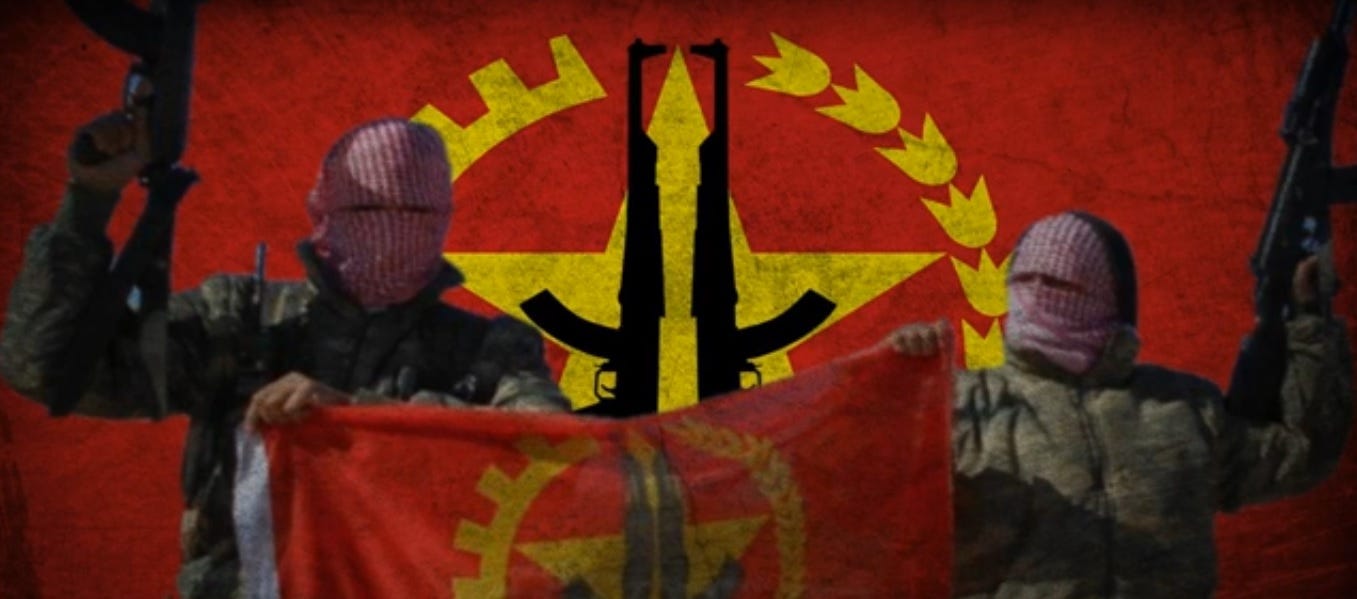
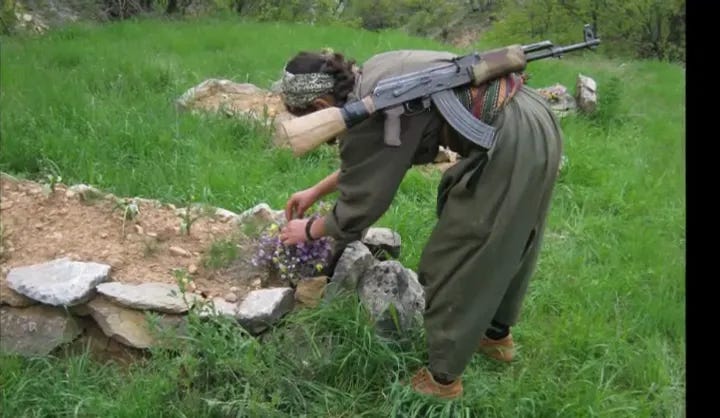
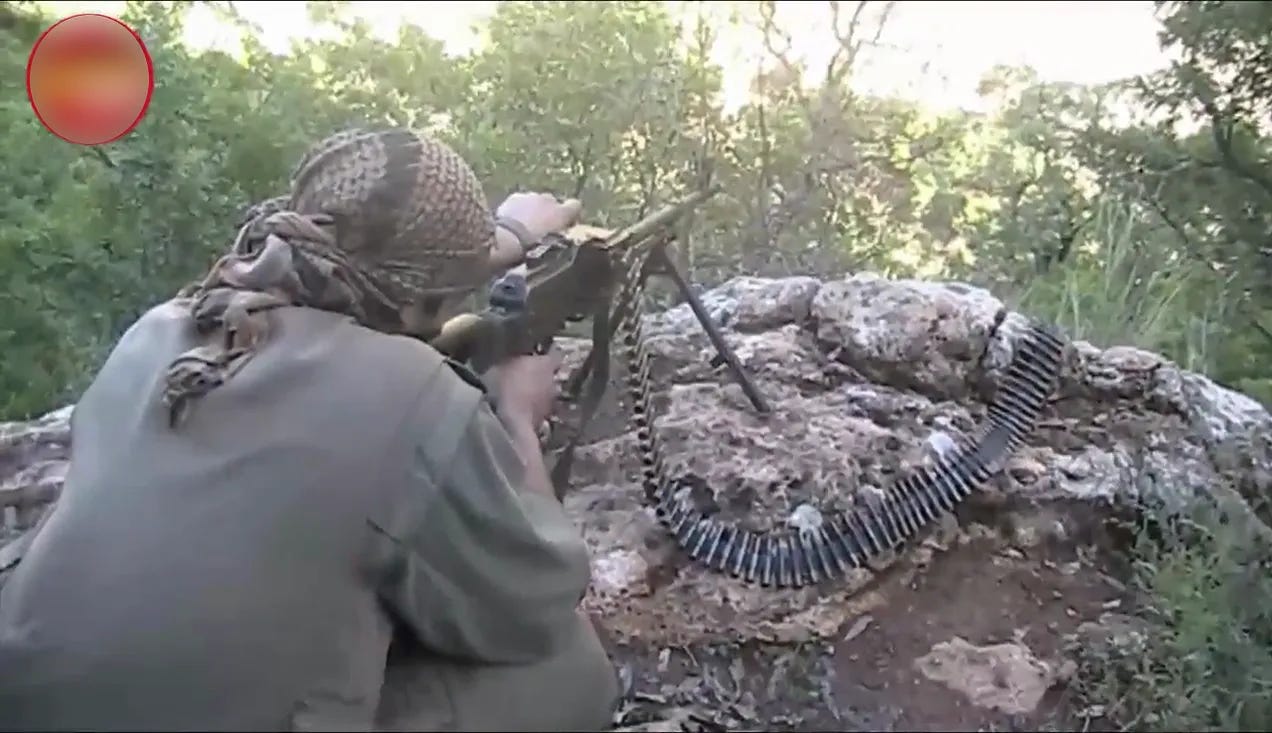
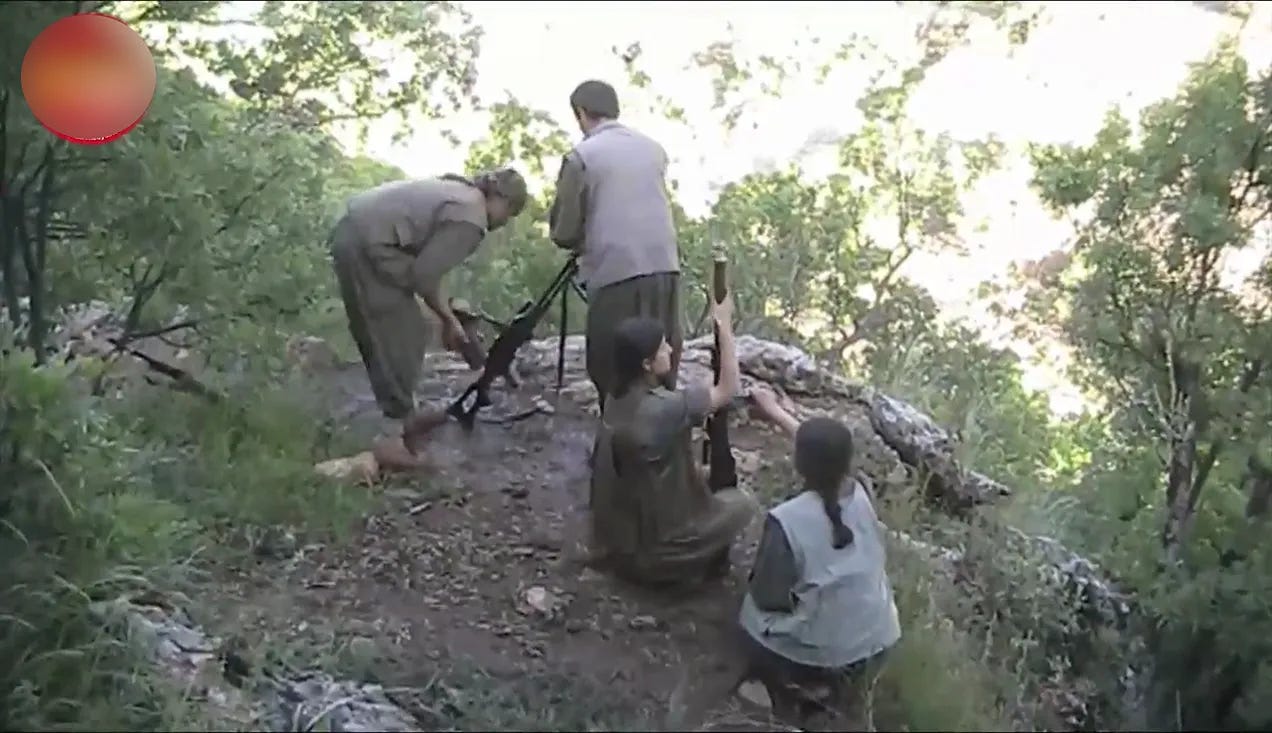



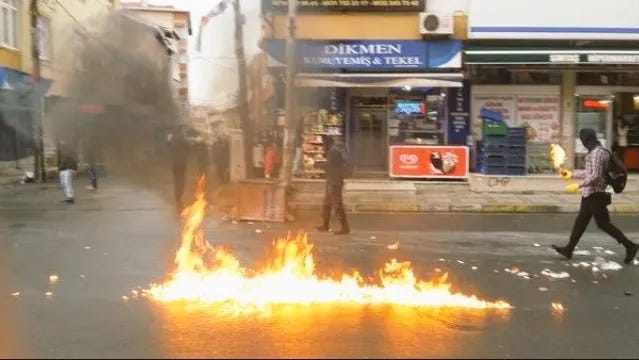


Do we know who it is? I cant find any source that names them.